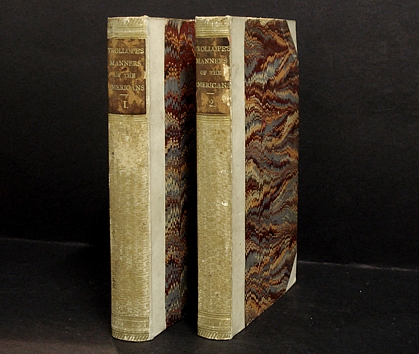
She carefully describes the prejudices of American's toward England and she correctly puts the blame on the newspapers. She finds the lack of refinement in Americans vulgar. Her negative descriptions of Americans are supported with experiences that she records. She praises American ingenuity with patents and architecture. I admire her focus on the environment and how she makes it one of the central themes of the book. Overall she is extremely impressed by the landscape and natural vegetation in America. ( )įanny admits she is biased against Americans, but she does make an attempt to balance her criticisms of America. At the time the Brits were vigorously making sure that "the sun never sets on the British Empire".ĭid she not know that they sold us the slaves? The irony! Read this and know how blind one can be to one's own country. And she represents everything that was wrong with the Brits at the time-mainly the conceit of thinking theirs was the only way. What makes this book an important part of history is the light it shines on both sides simultaneously.

Europe took thousands of years to get where it was in the mid nineteenth century. And we would have it all neatly wrapped up in 200 years so "our grandmother the British" could feel right at home. We'd travel in ships for months, fight the natives, make roads, FIGHT THEM OFF etc, and set up another England. The conceit that makes Trollope ridiculous is the idea that after leaving England, we would automatically want to be just like them. The problem and the thing that makes it a one of a kind gem is that it's told by an Englishwoman. And make no mistake: this woman is spot-on. It really gave me an insight into the roots of our culture. Volume 1 covers her travels through New Orleans, Memphis, Baltimore and Washington, and offers an engaging account of a nineteenth-century Englishwoman's impressions of America. Her criticisms of American culture are interspersed with descriptions of elections, cathedrals, markets, public balls, literature, and religion. She expresses her disgust at the copious handshaking, spitting-habits, tobacco chewing, expressions of self-righteousness, and hypocrisy of the Americans and vents her outrage at the existence of the slave trade in a country that boasted of equality.

Trollope encountered a country that was completely different from what she had expected. First published in 1832, it records her views on many aspects of American daily life, especially targeting the supposed lack of manners among Americans.

Frances Trollope candidly describes her travel experiences in the United States during 1827-1831 in her two-volume book Domestic Manners of the Americans.


 0 kommentar(er)
0 kommentar(er)
